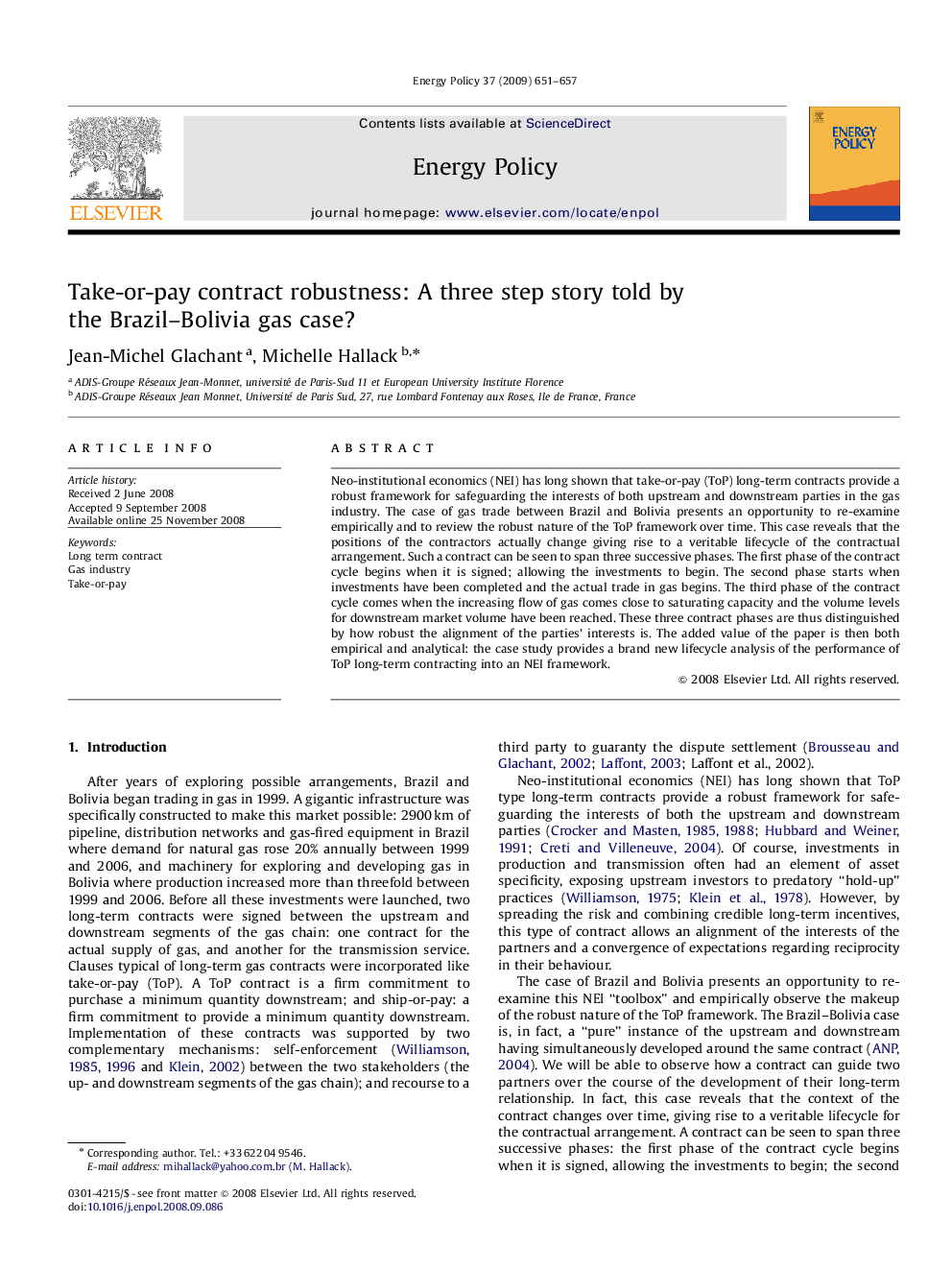| Article ID | Journal | Published Year | Pages | File Type |
|---|---|---|---|---|
| 993786 | Energy Policy | 2009 | 7 Pages |
Neo-institutional economics (NEI) has long shown that take-or-pay (ToP) long-term contracts provide a robust framework for safeguarding the interests of both upstream and downstream parties in the gas industry. The case of gas trade between Brazil and Bolivia presents an opportunity to re-examine empirically and to review the robust nature of the ToP framework over time. This case reveals that the positions of the contractors actually change giving rise to a veritable lifecycle of the contractual arrangement. Such a contract can be seen to span three successive phases. The first phase of the contract cycle begins when it is signed; allowing the investments to begin. The second phase starts when investments have been completed and the actual trade in gas begins. The third phase of the contract cycle comes when the increasing flow of gas comes close to saturating capacity and the volume levels for downstream market volume have been reached. These three contract phases are thus distinguished by how robust the alignment of the parties’ interests is. The added value of the paper is then both empirical and analytical: the case study provides a brand new lifecycle analysis of the performance of ToP long-term contracting into an NEI framework.
